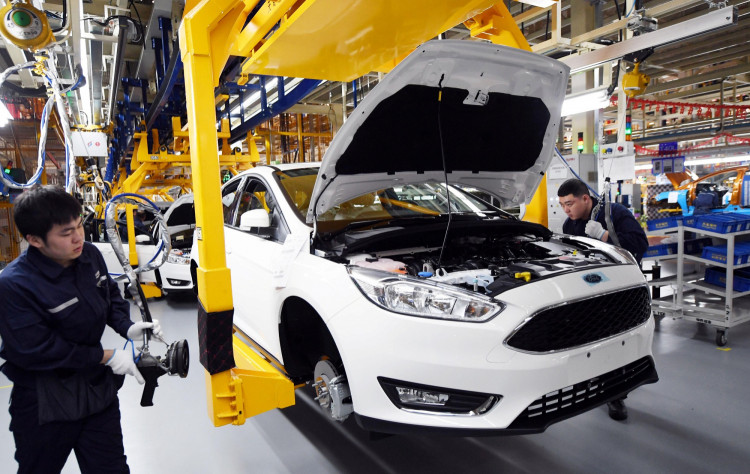Top car companies have cut production because of a coronavirus-lockdown related shortage of computer chips that help operate engines and entertainment and satellite navigation systems.
U.S. car company Ford Motor Co. and Japanese-French group Nissan Motor Co. Ltd. said they would scale back production with the semiconductors in short supply. Ford plans to close a sport-utility vehicle factory in Kentucky this week. Nissan will reduce output at its Oppama plant in Japan for the Note model by 5,000 units this month - among other planned production cuts.
Modern cars rely on different semiconductor chips to run components such as music and video systems, driver assistance and engine management. The increased use of just-in-time manufacturing techniques makes any parts shortage a potential stopper for making cars and items like smartphones.
The chip shortage surfaced late last year after factories began to restart following months of coronavirus lockdowns. At the same time, there was a rise in chip orders following a boom in smartphone and personal computer use from those working at home.
Volkswagen AG said in December the lack of chips would likely require it to reduce its capacity in Europe, China and North America. Large manufacturers such as Toyota Motor Corp. and Fiat Chrysler Automobiles N.V. have discussed production issues as a result of the shortage.
Toyota said the chip crunch had made it difficult for it to finalize production plans for 2021. General Motors has yet to make a statement but the company said it was keeping an eye on supplies.
Market analysts said auto parts suppliers such as Robert Bosch GmbH and Continental AG had problems meeting orders owing to the chip shortage. This is because of delayed shipments from producers such as Dutch-American NXP Semiconductors N.V. and Switzerland-based STMicroelectronics, they said.





